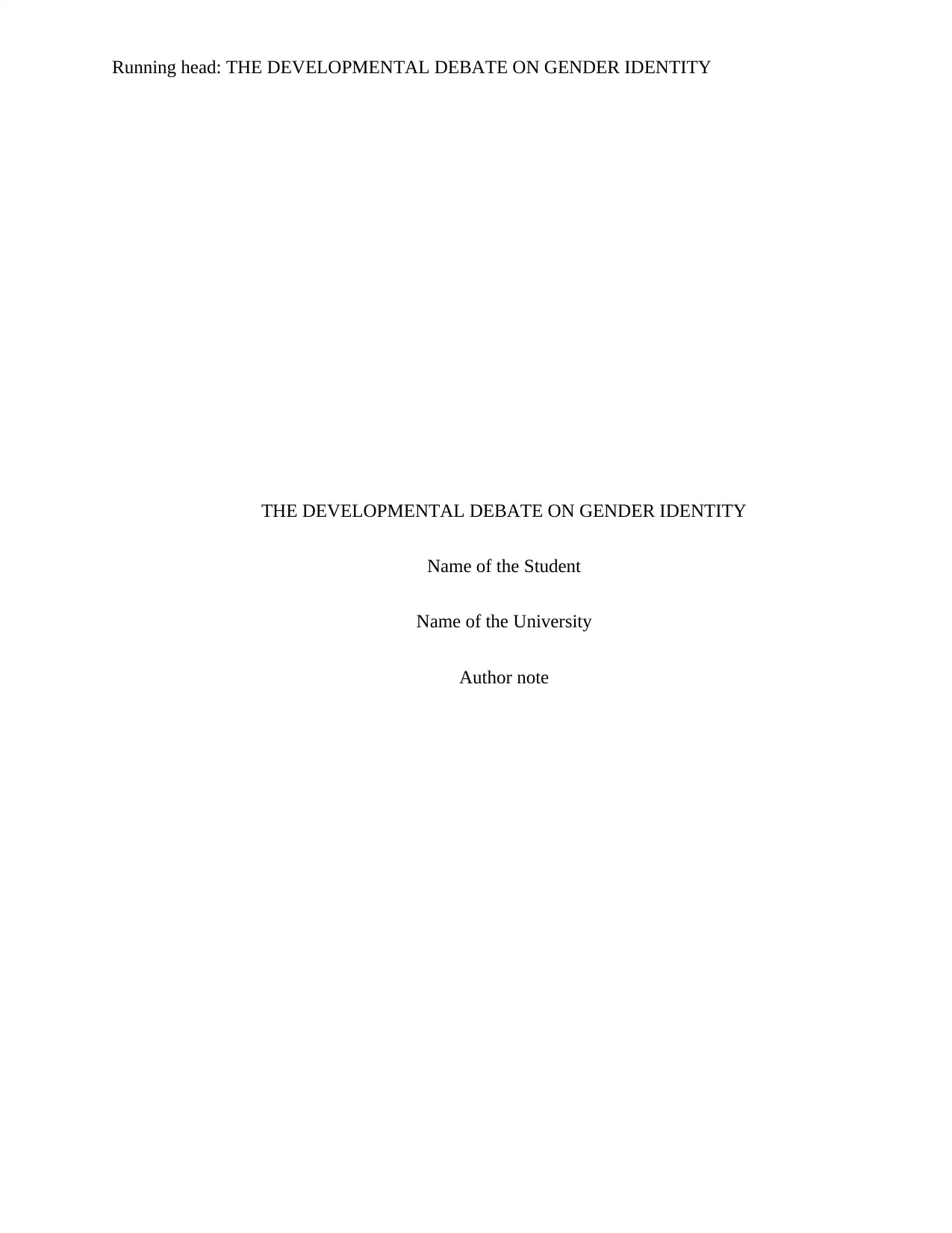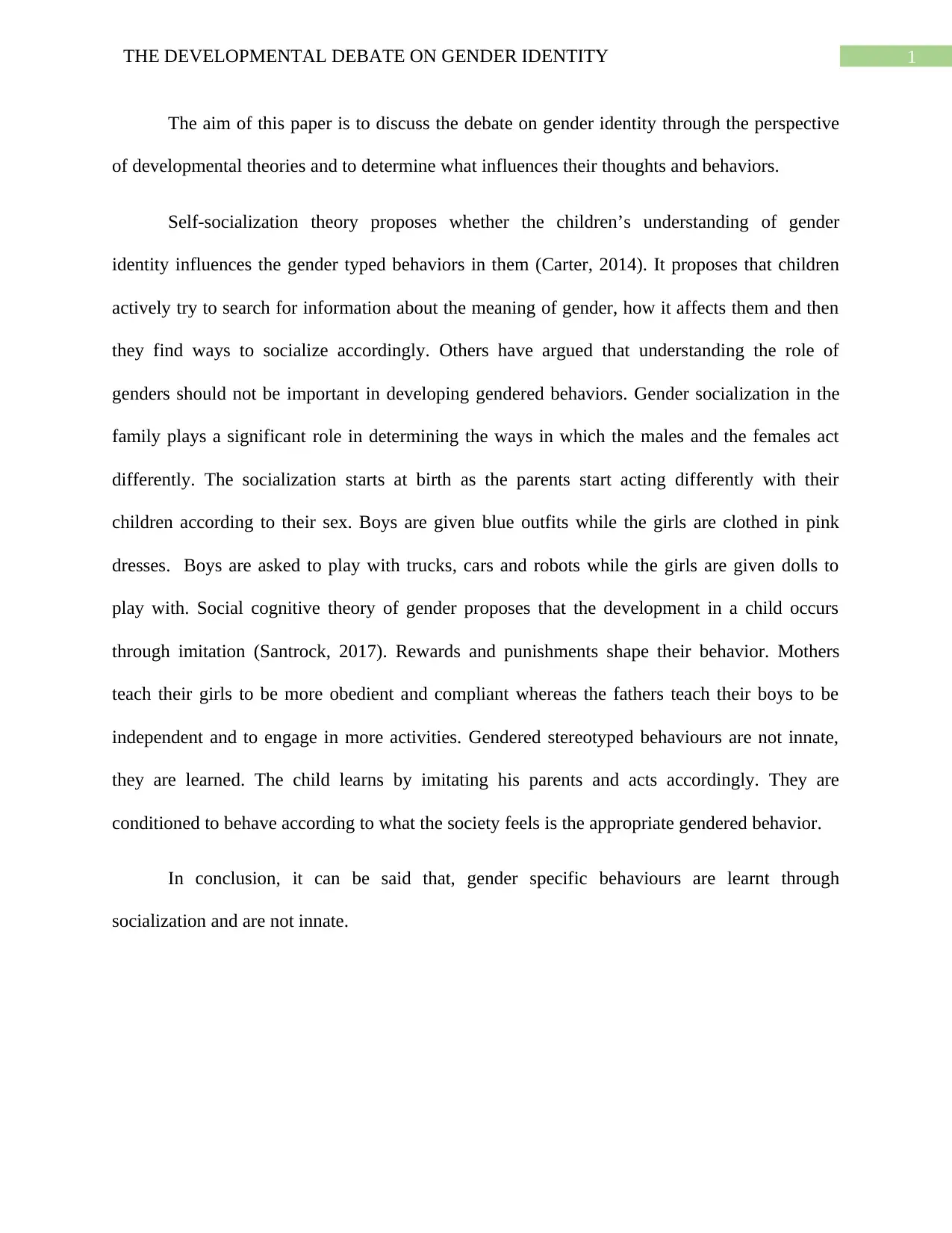A Discussion on Gender Identity Through Developmental Theories
VerifiedAdded on 2022/08/14
|3
|373
|14
Essay
AI Summary
This essay delves into the debate surrounding gender identity, examining the perspectives of developmental theorists. It explores how factors such as socialization and innate desires influence gendered behaviors. The essay discusses the self-socialization theory, highlighting how children actively seek information and adapt their behaviors accordingly. It also analyzes the social cognitive theory, emphasizing the role of imitation, rewards, and punishments in shaping gender-specific behaviors. The author argues that gendered behaviors are primarily learned through socialization, influenced by parental actions and societal expectations. This essay provides a comprehensive overview of how gender identity develops and the various influences at play, offering valuable insights into this complex topic.
1 out of 3










![[object Object]](/_next/static/media/star-bottom.7253800d.svg)